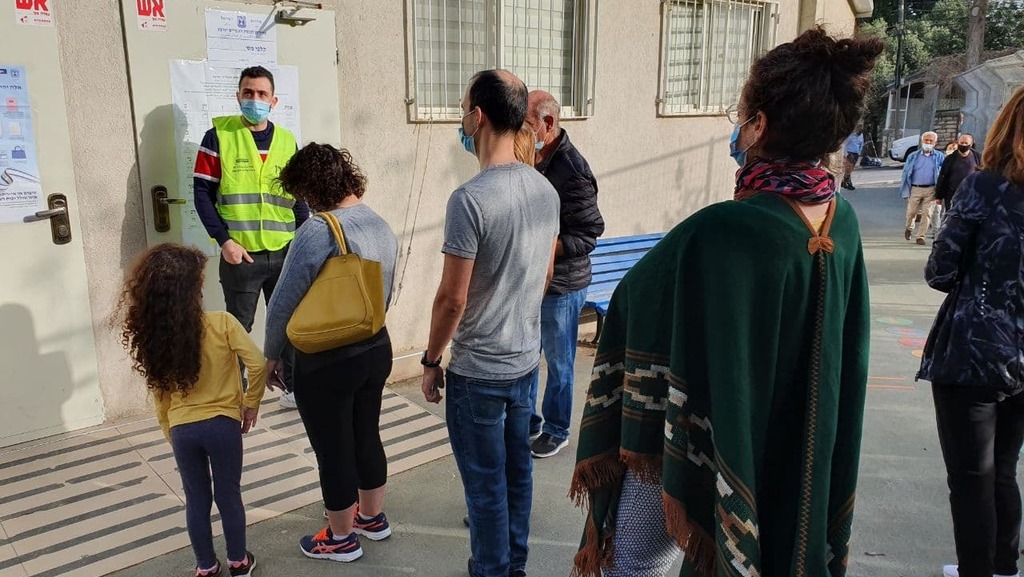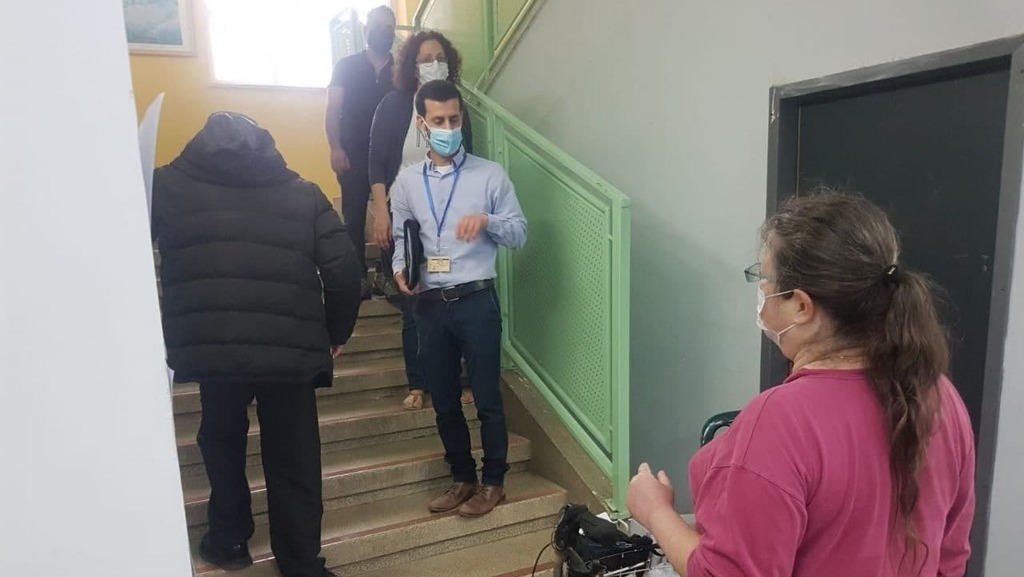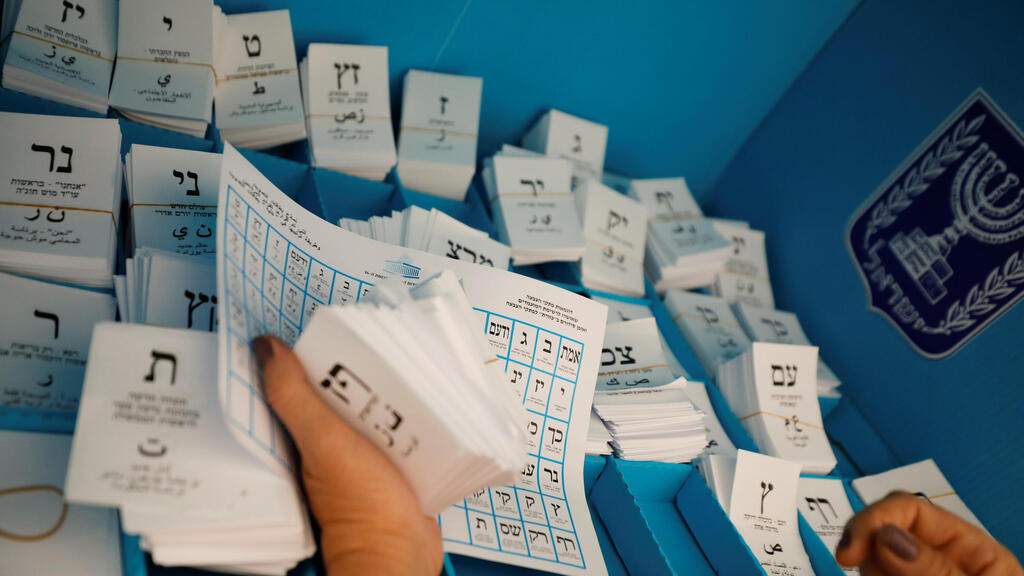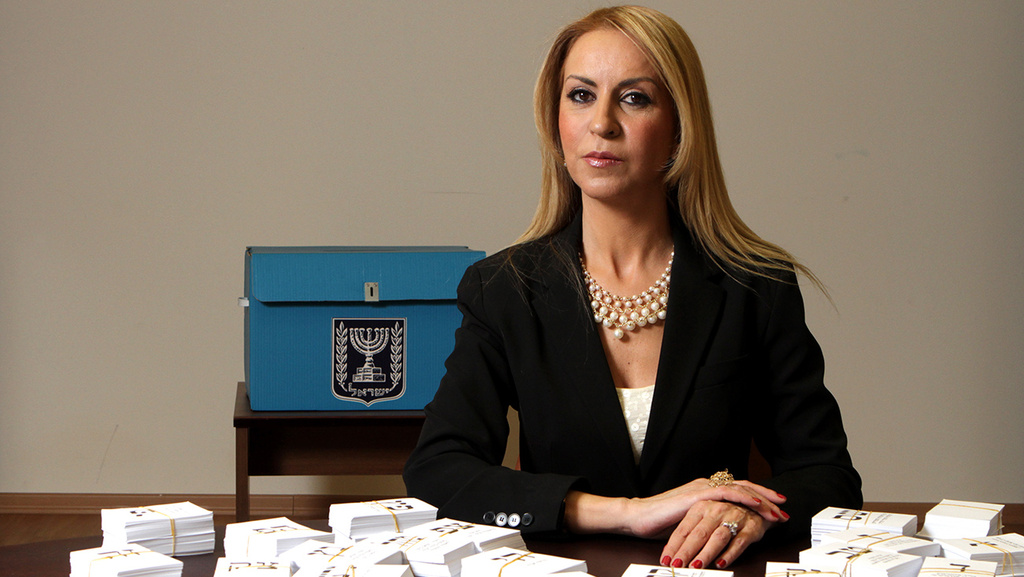Israel’s fourth parliamentary election in two years kicked off Tuesday morning and although most polling stations were set to open at 7am, many voters across the country report hours-long, unplanned delays and chaos at polling booths.
In small municipalities, polling stations opened at 8am and will close at 8pm, while polling stations intended for COVID patients will operate from 8am until 7pm.
In some of the country's bigger cities, however, including Jerusalem, Haifa and Rosh HaAyin, unplanned delays have reportedly resulted in massive queues, with dozens of voters waiting outside the polling stations.
Officials at the stations where delays have been reported, said they stem from lack of manpower.
“This is some unparalleled rudeness,” said Hagai Rabinovich, a senior citizen who came to cast his vote at the same Jerusalem polling station where President Reuven Rivlin is set to vote. “There are people here aged 84 and over, I myself have waited here for half an hour. No one has explained to us what is going on."
4 View gallery


A line of voters waiting in front of a polling station in Haifa
(Photo: Shamir Elbaz)
Once that particular polling station opened, however, it was riddled with technical malfunctions, including a broken elevator. This prompted elderly voters, including a 90-year-old Holocaust survivor, to climb two flights of stairs on foot in order to exercise his democratic right.
Another Jerusalem voter, who cast her ballot at a polling station nearby, said that although it had opened on time, the staff at the station were ill-prepared to deal with the workload.
“There were no disinfection kits at the entrance as was promised. There is a disinfection kit at the station, but you need to ask for it. [The Central Election Committee] has wasted our money on their awareness campaign.”
4 View gallery


90-year-old Holocaust survivor climbing two flights of stairs on foot to vote in Jerusalem
(Photo: Alex Gamburg)
In one of the polling stations in the city of Ramat Gan - which opened half an hour later than planned - a man pretended to be an election official, while the actual worker sat in a corner nearby. The man spoke rudely to the voters arriving at the station and said to one woman who had complained, "you gossip more than my wife".
One polling station in Rosh HaAyin opened with a 50-minute delay.
"Everything is starting to come together, of course there are some difficulties in the morning hours when the staff at the stations is running late,” the head of the Central Election Committee, Orly Adas, told Ynet.
“In the southern region, because of the strong winds, some of our polling station tents had collapsed during the night. We're already taking care of it. We will also send our mobile voting bus, in order to avoid additional delays.”
Some 6,578,084 Israelis are eligible to vote, with 13,685 polling stations operating across the country. At least 751 stations are dedicated to coronavirus patients and those in self-isolation, including one set up at Ben Gurion Airport.



